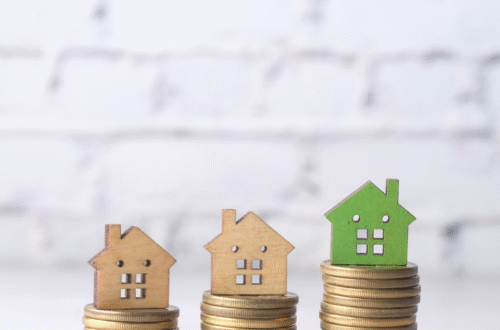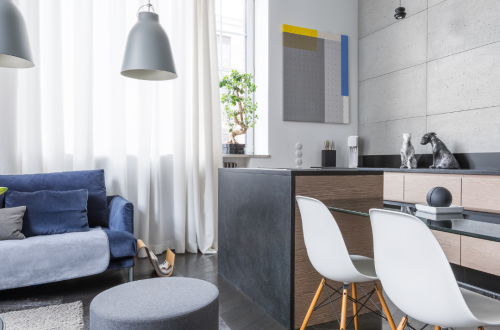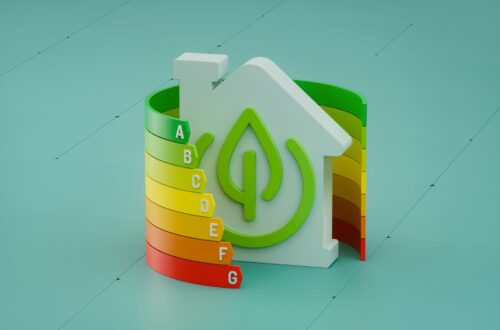The choice between renting and buying a home is significant and often challenging. Both options provide distinct advantages and disadvantages that cater to different needs and lifestyles. For many, renting offers flexibility and lower initial costs, while buying can build equity and provide a sense of stability.
Renting allows individuals to adapt quickly to their changing circumstances, whether due to job relocations or personal preferences. On the other hand, buying a property can be a sound long-term investment, potentially increasing in value over time. Understanding these key differences can aid anyone in making an informed decision.
This comparison becomes even more vital when considering financial implications, such as monthly payments, maintenance costs, and the impact on one’s credit score. By evaluating both sides, individuals can determine which path aligns best with their goals and financial situation.
Key Differences Between Renting and Buying
Renting and buying each offer distinct advantages and challenges, influencing lifestyle choices and financial paths. Understanding these differences helps individuals make informed decisions based on their circumstances.
Overview of Renting and Buying
Renting usually means paying a monthly fee to live in a property without owning it. It’s a flexible option, often preferred by those who aren’t ready to commit to one location. Buying a home, on the other hand, involves a mortgage and represents a long-term investment in real estate. Additionally, it offers the possibility of custom homes built for you, creating a living space that reflects individual preferences and lifestyle.
While renting requires less upfront capital, home ownership offers stability and potential for property value appreciation. Each option caters to different needs, such as short-term vs long-term living arrangements.
Financial Commitment and Flexibility
The financial implications of renting compare starkly with buying. Renting usually requires a deposit and monthly rent, which can fluctuate with market conditions. There are limited ongoing costs, such as maintenance fees, allowing for greater budget flexibility.
Buying a property demands a significant initial investment, including a deposit and closing costs. Homeowners face fixed mortgage payments, property taxes, and potential maintenance expenses. This commitment can limit financial manoeuvrability, making renting a more flexible choice for those uncertain about long-term plans.
Length of Stay and Lifestyle Preferences
Individuals with varying lengths of stay often choose between renting and buying. Renting is ideal for those with transient lifestyles or job-related relocations. It allows for easy movement, making it suitable for young professionals or families seeking temporary housing. In major cities, options like luxury apartments philadelphia (or another local area) can provide high-end, flexible living arrangements that appeal to those valuing both comfort and mobility. These residences often come with amenities such as fitness centers, rooftop lounges, and concierge services, enhancing the overall living experience. Choosing a rental with such features can make short- or mid-term stays feel more like home.
In contrast, individuals aiming for long-term stability might lean towards buying. Home ownership tends to cater to families or individuals desiring to invest in their future. Exploring homes for sale grantwood village mo and elsewhere enables customisation of living space, fostering a sense of community and belonging, crucial for those valuing permanence in their lifestyle.
Financial Considerations of Renting vs Buying
Understanding the financial aspects of renting and buying is crucial for making an informed decision. The analysis covers costs, ongoing financial obligations, and current market dynamics.
Upfront and Ongoing Costs
Renting typically requires lower upfront costs compared to buying. A tenant usually needs to provide a security deposit and the first month’s rent. In contrast, purchasing property entails a substantial down payment, often between 5% to 20% of the property price, alongside closing costs, which may include legal fees and stamp duty.
Ongoing costs further differentiate the two options. Renters may face monthly rent along with utilities, but homeowners are responsible for mortgage repayments and associated costs, including property taxes and perhaps homeowners’ insurance. Maintenance might also fall on the homeowners, adding to their monthly financial burden.
Monthly Payments and Affordability
Monthly payments vary significantly between renting and buying. Rent prices fluctuate depending on location, market demand, and property type. In many urban areas, renting might be more affordable initially, especially for those just starting their careers.
For buyers, the monthly mortgage payment can be higher than renting, but it may contribute to building equity. Interest rates can affect monthly costs. Lower interest rates result in lower payments, enhancing affordability for homeowners, while rising rates can add financial strain.
Maintenance and Unexpected Expenses
Homeownership often requires budgeting for maintenance and repair costs. It is advisable for homeowners to allocate around 1% of the property’s value annually for upkeep. This expense can be unpredictable, as emergencies like roof repairs or appliance failures can occur. It’s also worth factoring in the cost of a survey early on to assess the property’s condition and uncover any potential issues-this helps you survey your property to the best standard and avoid nasty surprises later.
Renters generally have fewer responsibilities concerning maintenance. That responsibility usually falls upon the landlord. However, renters should still consider potential costs such as renters’ insurance or small maintenance tasks.
Current Housing Market Conditions
Current housing market conditions significantly influence financial choices. In a seller’s market, property prices can soar, potentially making buying less accessible. This situation may encourage individuals to rent until the market stabilises.
Conversely, in a buyer’s market, investors might find opportunities to purchase property at lower prices, potentially leading to greater long-term financial stability. It’s crucial to evaluate the cost of living, mortgage interest rates, and housing demand to make a financially sound decision. The interplay of these factors affects monthly affordability and overall financial strategy.
Long-Term Implications and Investment Value
Renting and buying property carry different long-term implications and investment values. Each choice has unique consequences that affect financial stability, equity growth, and overall wealth accumulation.
Equity and Capital Gains
When buying a home, individuals begin to build equity with each mortgage repayment. This equity represents ownership value in the property and can increase through appreciation in property value over time. Capital gains occur when a property is sold for more than its purchase price, reflecting the investment’s growth.
Investors who purchase property with the intent to sell later may benefit from significant capital gains. In areas with strong housing markets, these gains can far exceed the costs associated with ownership, such as council rates and maintenance.
Building Wealth Through Property Ownership
Investing in property offers a pathway to build wealth. Homeowners can leverage their equity for further investments or financial needs. A fixed-rate mortgage is advantageous, as predictable payments facilitate long-term financial planning.
Renting, in contrast, does not build any equity. Monthly rent payments contribute to the landlord’s wealth rather than the renter’s. Over time, the absence of equity accumulation in renting can lead to missed opportunities for financial growth and security.
Financial Risks and Dead Money
Homeownership, while promising, comes with financial risks. Market fluctuations can lead to decreased property values, risking equity. Unexpected expenses, such as large repairs, can further strain financial resources.
Renting involves what some refer to as “dead money.” While rent payments secure a place to live, they do not contribute to an ownership stake. This method can feel less stable, as renters remain susceptible to rent increases and eviction, leading to uncertainty in long-term housing costs.
Making an Informed Decision
When deciding between renting and buying, it is crucial to evaluate one’s financial situation, market trends, and lifestyle goals. Each aspect impacts the choice significantly, guiding individuals toward the best option for their needs.
Assessing Your Financial Situation
Understanding personal finances is the first step in making an informed decision. This includes evaluating income, savings, debts, and credit score. A stable income and robust savings can support a commitment to buying, which typically requires a significant down payment.
Individuals should also consider the ongoing costs associated with each option. Homeownership incurs expenses such as property taxes, maintenance, and insurance. In contrast, renting usually includes fewer long-term financial commitments, allowing for easier budgeting.
A detailed budget analysis helps determine affordability. If monthly rent is less than what a mortgage payment would be, renting may be more financially advantageous in the short term.
Evaluating Market Trends
Market conditions play a vital role in the decision-making process. Understanding local property trends can inform whether buying is a sound investment. If property values are increasing, buying sooner may be wise to capitalise on potential equity growth.
Conversely, if the market is declining, renting could provide flexibility while waiting for better conditions to buy. Researching historical trends, average rental rates, and home prices helps gauge whether now is the right time to purchase or continue renting.
Local economic indicators also matter. A stable job market often supports higher home prices and encourages buying, while economic uncertainty may favour renting as a lower-risk option.
Considering Lifestyle and Future Plans
Lifestyle factors significantly influence the renting versus buying debate. Individuals should reflect on their future plans, such as career moves or family growth. Renting typically offers more flexibility for relocation, ideal for those in transient situations.
On the other hand, homeownership provides stability and the potential for personalisation. Those who plan to stay in one location long-term might find buying more rewarding.
Additionally, personal preference plays a role. Some may appreciate the freedom of renting, avoiding the responsibilities of maintenance, whereas others may desire the investment aspects of owning property. Understanding these nuances aids in making a well-rounded decision.





